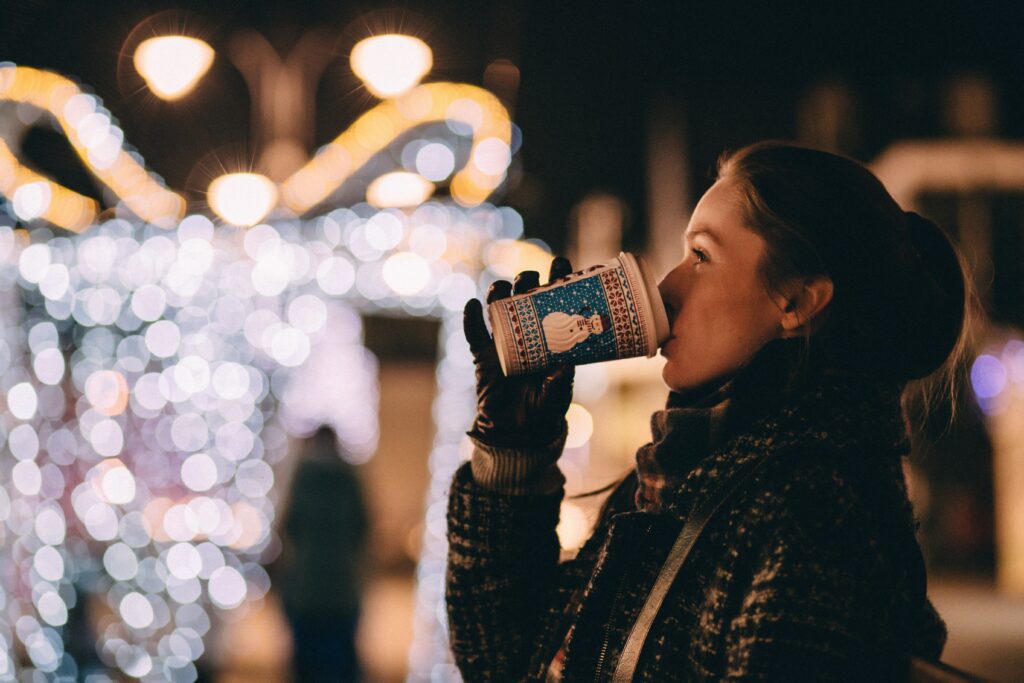The simple fact that holidays celebrate a time for joy and connection creates an opportunity for noticing our loneliness. Right now loneliness is an epidemic, strangely something we all share. One important factor in how we feel connected in our world is our primary attachment style. The way that we build connections with others does not go away for the holidays. Those unconscious habits about trust and connection can be amplified by the heightened expectations of the holidays.
Our patterns of connecting with others are often shaped by our early relationships, particularly our caregivers. The way the world responds to our early needs creates a lasting impression about how others show up for us and what they are willing to give. There are four main attachment styles that refer to ways that we then choose and develop relationships based on these early interactions: secure, anxious-preoccupied, dismissive-avoidant and fearful-avoidant.
A secure attachment style means you generally feel comfortable feeling close and having intimacy with others. This would mean you have greater skills to navigate all the social interactions of the holidays. You may enjoy holiday gatherings and look forward to being together with family and friends as a supportive, enjoyable time.
Anxious-preoccupied attachment results from inconsistent and inadequate responses to early life needs. Often the anxious-preoccupied attachment style to seek reassurance about the status of the relationship to help manage fears of rejection. During the holidays this may show up as anxiety about social interactions. When expectations for connection aren’t met, feelings of loneliness can result. It can be helpful for individuals with anxiety in their relationship, to recognize and give credit to the connections they do feel and avoid thinking that a lack of connection during the holiday is a reflection of their value or worth. Connecting with just a few important people during the holidays can be enough, an enjoyable reminder that we all need just those important few people in our corner.
A dismissive- attachment style may do the opposite. They may over-value their independence and lack of need for holiday ritual and fuss. Their place of comfort may be choosing solitude during the holidays, avoiding parties or even family get-togethers. Unfortunately, this can feel stable and in- control at the time, but can still lead to feelings of isolation in the long term. Choosing to invest even small amounts of time to meet and connect with family and friends can maintain relationships. If it is making an appearance or spending time one-on-one, it is important to remember that small efforts help others feel loved and allow them to express their care for you.
The fearful-avoidant attachment style can create discomfort and confusing emotions during the holidays. This attachment style may have experienced strong criticism, fear or even abuse and neglect as children. The emotional landscape of this style is both a strong desire for connection and fear of actually getting close in a relationship. It can be hard to ever fully trust a romantic partner, or that it is a pattern to push people away and avoid the pain of someone else hurting them. This can make holidays full of emotions, desiring positive family connections or repairs and simultaneously feeling the need to stay safe. It is important for those who have been in toxic and abusive relationships to realize that both the sadness and hurt as well as the desire to stay protected have come from real places; the challenge to look at consistent behaviors coming from others and choose wisely to invest in those who appear to invest in return.
It is good to remember that attachment styles are always generalizations that do not account for the individual and their unique hurts, strengths and situations. General ideas can help use spot patterns that we might be caught in, but they may not fully address the complex nature of trust and relationships in your life. Taking in suggestions and advice can be useful, but it may also be helpful to seek professional help if the web of emotions and hurt feel overwhelming.
As each of us face holidays and hopes and fears, it is good to remember the moments of love and care we have had and look forward to ways that we can build connection with those we love. And remember, you are not alone in the sense of loneliness—many other people appear connected and are also working hard to find healthy and positive connection this holiday season.







